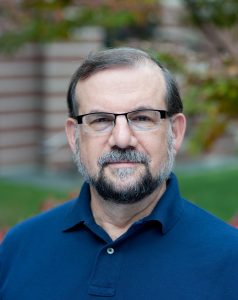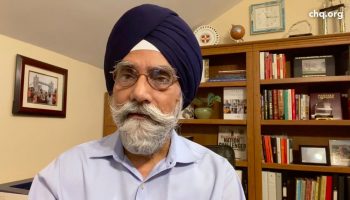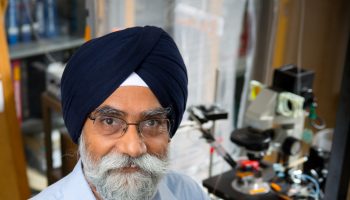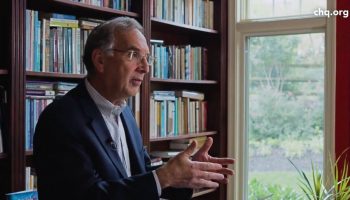Interfaith dialogue is a routine aspect of Rabbi Burton L. Visotzky’s career, both as Appleman Professor of Midrash and Interreligious Studies at the Jewish Theological Seminary and as a director at the seminary’s Milstein Center for Interreligious Dialogue.
 “I came to it academically,” Visotzky said. “My doctoral work is in rabbinical interpretation of the Bible, and to do the doctoral work properly, I needed Greek, and the best Greek for the period was New Testament Greek. So I went across the street from my seminary to a Protestant seminary union, and that’s where I started taking Greek.”
“I came to it academically,” Visotzky said. “My doctoral work is in rabbinical interpretation of the Bible, and to do the doctoral work properly, I needed Greek, and the best Greek for the period was New Testament Greek. So I went across the street from my seminary to a Protestant seminary union, and that’s where I started taking Greek.”
As he furthered his studies, Visotzky found himself surrounded by people of different faith traditions, and took an interest in learning about other religions’ languages and cultures.
At 2 p.m. Friday, July 20, in the Hall of Philosophy, Visotzky will share his interfaith experiences and engage in dialogue with the Rt. Rev. V. Gene Robinson, Chautauqua’s vice president of religion. Visotzky will represent Conservative Judaism during the Institution’s fourth Interfaith Friday.
“When you walk into a room, whether it’s of Muslims or Christians, and you know their scripture and you know it in the original language, they understand that you’ve actually done the hard work of sitting and learning and showing your respect,” Visotzky said. “That’s what this (interfaith work) is all about.”
Visotzky, winner of the 2012 Goldziher Prize for Jewish-Muslim Relations, has traveled worldwide as an interfaith scholar and lecturer.
In 1977, he traveled to the Soviet Union as part of a service group to help Jewish people wishing to leave the country. In 1994, he went back to Russia to teach Jewish studies and encourage religious tolerance. Though the country had changed dramatically, Visotzky knew anti-Semitism still existed.
“We wanted to help the Jewish people there, and we wanted to help everyone there have an opportunity to get to know one another,” he said. “We wanted everyone to appreciate that you can be a Russian Christian, you can be a Russian Muslim and you can be a Russian Jew. The same is true in America — you can be whatever religion you want.”
As a board member of the International Jewish Committee for Interreligious Consultations, Visotzky continues to recognize the need for interfaith connection worldwide.
Amid current tense political situations, he said this type of activism is imperative.
“It’s really essential for the world we live in that we learn as religious leaders and religious believers to get along with one another first and foremost, and to do the things that God asks of us,” he said. “At a time when our government is starting to fail to do that, the religious community has to step up.”
Though Visotzky has held many titles — rabbi, professor, author, lecturer — above all he considers himself a “peacemaker.” During his first visit to Chautauqua, he hopes to spread this peace by encouraging interfaith work.
“My own Jewish tradition is very zealous for the idea that we’re all created in God’s image,” he said, “and that therefore we’re all in some way related. … We learn to get along with our neighbors, as the rabbis say, ‘mipnei darkhei shalom,’ which means ‘in the interest of peace.’ ”




